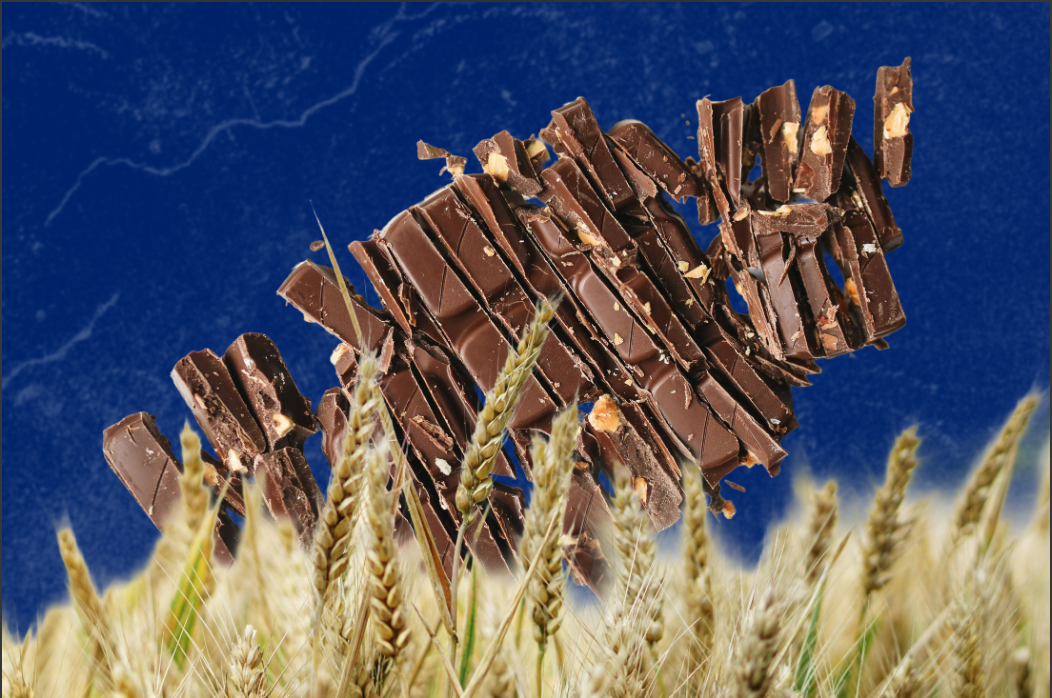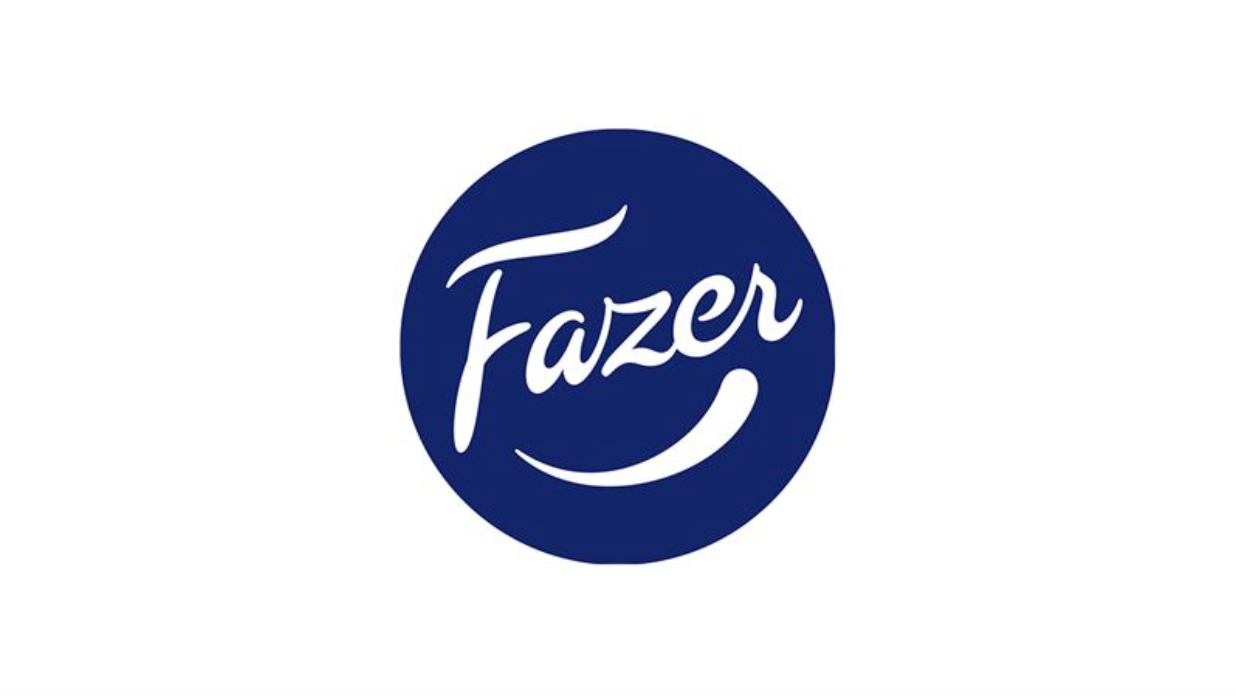



Keep this story going! Share below!
The Taste the Future tablets use locally sourced, malted Finnish grains to create a rich and smooth taste profile similar to chocolate flavor without using cocoa, offering a more sustainable alternative to traditional chocolate. The Taste the Future concept is a small-scale and learning-oriented experiment designed to complement Fazer’s traditional chocolate production. This innovation was developed in Fazer’s Forward Lab as part of a broader effort to reduce the company’s dependency on cocoa, which faces climate and social sustainability challenges.
Taste the Future tablets redefine traditional chocolate by replacing cocoa with Finnish grains such as malted oats and rye. According to the interview, the malted grain represents a notable share of the formulation, giving the product its characteristic flavor and color. The recipes are not only cocoa-free, but also plant-based and free from palm oil. It was also highlighted in the interview, that Fazer is exploring the use of local lipid sources to further improve sustainability and further reducing longer transportations. As the products do not contain cocoa, Fazer markets it as a candy tablet rather than chocolate. The company confirmed that it has already been able to produce the product on a larger scale, although further tests are still needed before full commercialization.
The new concept offers solutions to the challenges of climate change and the unsustainable aspects of cocoa farming, as the cocoa shipped from far away is replaced with local alternatives. The concept provides consumers with delicious and more sustainable alternatives for chocolate, handcrafted in Helsinki. This innovation supports the UN Sustainable Development Goals on climate action (SDG 13), industry innovation and infrastructure (SDG 9), and responsible consumption and production (SDG 12). Additionally, if the innovation results in reduction in the use of cocoa on a bigger scale, it may also have a positive effect on the deforestation issue related to cocoa farming, promoting the life on land sustainability goal (SDG 15).

The initiative follows an iterative innovation process that included ideation workshops, small test batches, and pilot launches. The idea for Taste the Future emerged through Fazer’s internal innovation culture rather than a single moment of inspiration. The Forward Lab team, which includes professionals with both bakery and confectionery backgrounds, began experimenting with different grains to explore new flavors and textures. Their goal was to create a product that demonstrates how local ingredients could be used to make confectionery in a more sustainable way.
The product is still in a pilot phase, and the first pilot tests of the product line began in early 2023, followed by limited-edition launches in Finland and Sweden. Two main varieties were tested in the pilot tests: a rye-based Mint Croquant, and an oat-based Red Berries version. The received feedback showed that consumers are open to trying new confectionery concepts, also helping with the development of the new product line. Collected feedback also revealed that consumers viewed the candy tablets as an exciting new category rather than a substitute for chocolate. This response validated the team’s belief that the product could succeed as a distinct and innovative confectionery concept with both commercial and sustainability value. Positive consumer responses encouraged Fazer to continue developing the idea.
The company’s broader sustainability strategy, focusing on reducing waste and utilizing side streams, also influenced the direction of this project. In parallel, the company has experimented with upcycled ingredients in other Taste the Future variants, showing a continuous effort to link innovation with circularity. Although the candy tablets do not currently include upcycled ingredients, the team had earlier tested similar concepts using okara, a by-product from oat milk production.
The overall impact of Taste the Future can be seen through both the business learning and the awareness it created among consumers and stakeholders. The project helped Fazer to test new methods in product development, ingredient sourcing, and consumer communication. During the interview it was mentioned that the pilot tests gave Fazer valuable data about how people respond to cocoa-free confectionery, and the feedback from the customer surveys was very positive. The team reported that the limited editions were sold out quite fast which confirmed that there is market curiosity for sustainable and innovative products.
Internally, the project increased collaboration between different departments like R&D, marketing, and sustainability, and built new knowledge on how to use local grains in confectionery production. The process also encouraged Fazer to keep looking for new alternatives and to continue exploring how traditional products can be developed with a smaller environmental footprint. The impact is not only on the product itself but also on how Fazer approaches their future innovation projects.
From a business perspective, this initiative allows Fazer to build internal knowledge on local ingredient sourcing, roasting techniques, and plant-based product development. It also strengthens local supplier partnerships and generates public discussion around sustainability and the future of chocolate. The project continues to operate as an experimental platform that helps Fazer evaluate the technical and commercial feasibility of scaling production and integrating this new concept into its broader product portfolio. While a formal life cycle assessment has not yet been completed, Fazer plans to conduct one once the production process stabilizes.
Taste the Future concept gives Fazer a chance to diversify its portfolio and reduce dependency on cocoa, which is exposed to price volatility and supply risks. The interview showed that Fazer sees this project as a way to learn and build capabilities that could be valuable in the long term. Even though the current production is still small-scale, the pilots already demonstrated strong consumer interest which is important evidence for future investment decisions. By creating a new product category, Fazer can reach consumers who are looking for plant-based and locally sourced sweets, which strengthens the company’s brand as an innovative and responsible player. It also supports Fazer’s strategic goal of promoting more sustainable and transparent supply chains. The project provides insights that can be applied in other product areas too, for example how to integrate Finnish grains or other local ingredients into confectionery in a cost-effective way. In the future, if scaled, this innovation can reduce raw material risks and open new business opportunities in domestic and international markets.
The Taste the Future project contributes to both social and environmental sustainability. Environmentally, the replacement of cocoa with Finnish grains lowers dependency on an imported raw material that are often linked to high environmental and ethical challenges. The decision to use local grains instead of cocoa from abroad allows shorter transportation distances reducing the emissions related to transportation, supporting the Finnish agricultural sector as well. While coconut oil and shea butter have been used as the main source of oil and butter in these candy tablets, Fazer is testing options to replace those as well with more local alternatives. Although the life cycle assessment has not been finalized yet, Fazer expects that the overall environmental footprint will be smaller compared to traditional chocolate.
Socially, the innovation encourages consumers to think about where ingredients come from and how food choices affect the environment. The interviewee also mentioned that the project had a positive internal effect within the company, as employees felt motivated to work on something that connects innovation with responsibility. Additionally, through cooperation with local suppliers, Fazer strengthens local partnerships and supports regional economic activity. Even though the product is still in the pilot stage, it already represents a practical example of how a large company can combine innovation, sustainability, and local sourcing in a meaningful way.
Get stories of positive business innovations from around the world delivered right to your inbox.
Annika Porr, Senior Manager, Forward Lab

Fazer is a leading Nordic food company with a long history in confectionery, bakery, and plant-based products. The company combines its strong brand heritage with new innovation initiatives led by the Forward Lab.